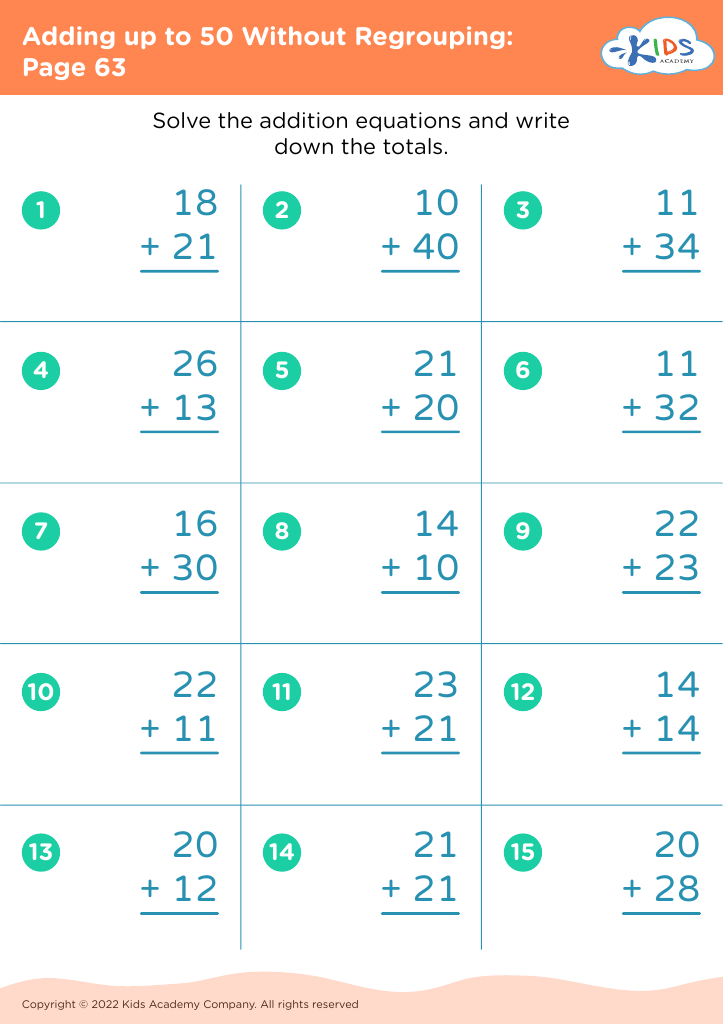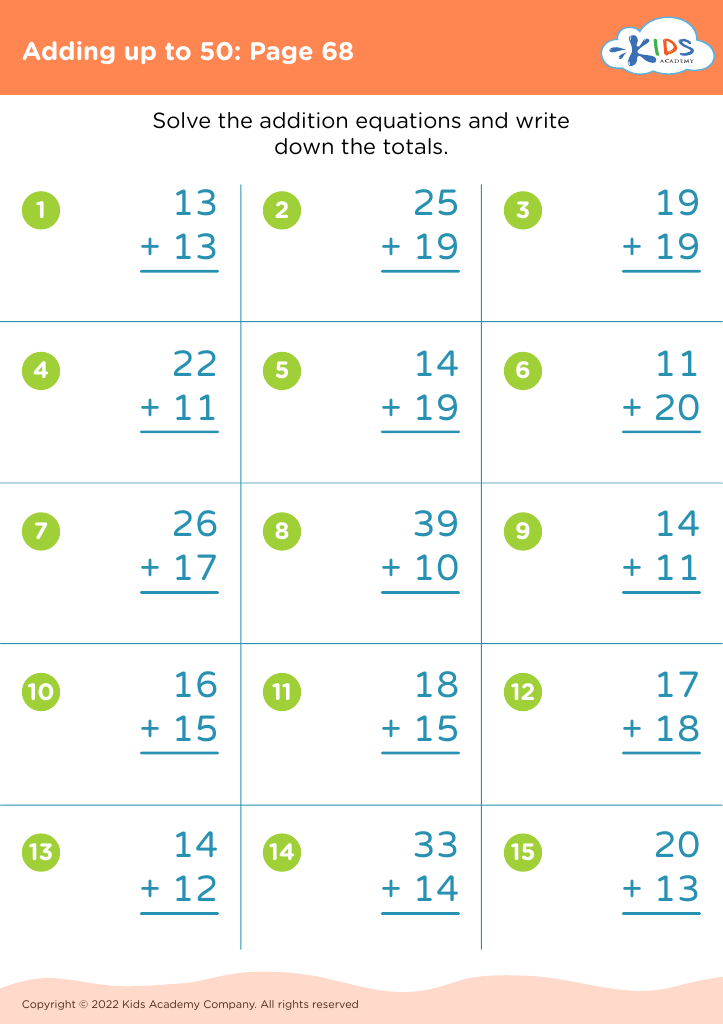Understanding fractions Addition & Subtraction Worksheets for Ages 3-9
163 filtered results
-
From - To
Discover our engaging "Understanding Fractions Addition & Subtraction Worksheets" designed for children aged 3-9. These worksheets offer a fun and interactive approach to help young learners grasp the foundational concepts of fractions through addition and subtraction. Aligned with educational standards, our resources include colorful visuals and age-appropriate exercises that encourage critical thinking and problem-solving skills. Perfect for use at home or in the classroom, these printable worksheets make learning enjoyable while reinforcing essential math knowledge. Whether your child is just starting out or looking to strengthen their skills, our materials are an ideal way to build confidence in mathematics!
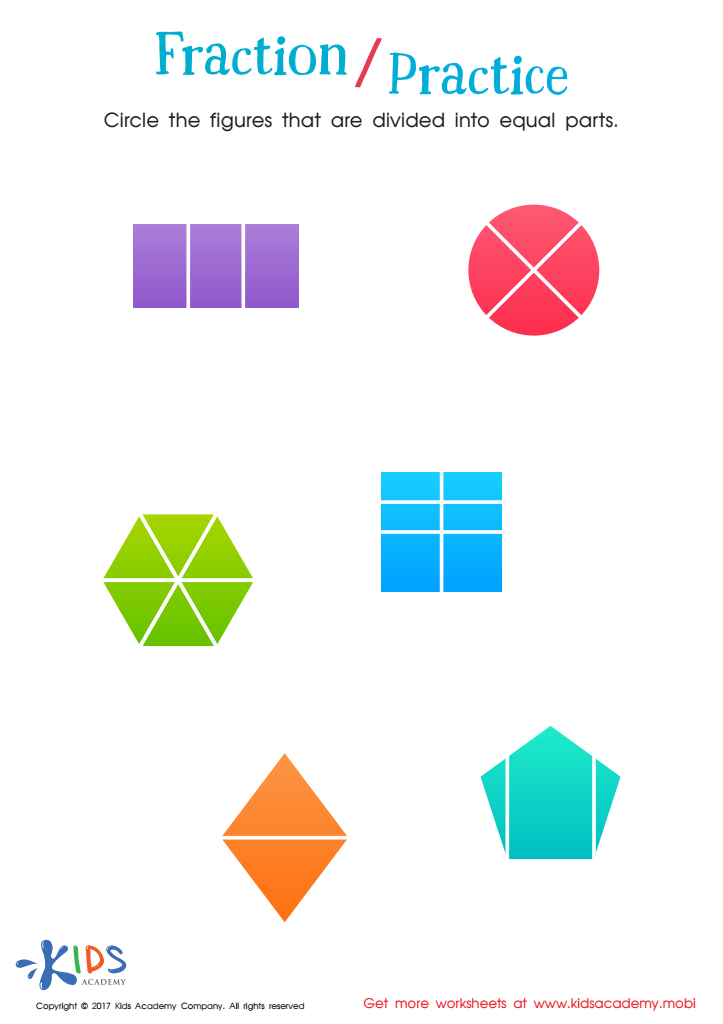

Fractions: Shapes Worksheet
Understanding fractions, as well as their addition and subtraction, is crucial for children aged 3-9, as it lays the foundation for mathematical skills needed in later life. At an early stage, children begin to develop their number sense, which is pivotal when they encounter more complex mathematical concepts in school. Fractions allow children to grasp the idea of part-whole relationships, enhancing their comprehension of division and ratios.
Moreover, familiarity with fractions helps develop critical thinking and problem-solving skills. Engaging with fractions through hands-on activities—like dividing pizzas or measuring ingredients for a recipe—makes math tangible and enjoyable. This hands-on approach boosts motivation and encourages children to explore mathematical ideas with curiosity, setting a positive tone for future learning.
For parents and teachers, fostering an understanding of fractions prepares students for advanced mathematics and everyday tasks involving measurements, sharing, and comparing. By nurturing these skills early, we can help children build confidence and resilience in math, ensuring they are better equipped to face challenges in their academic journeys. Ultimately, emphasizing fractions will enrich their personal and educational experiences, creating lifelong skills they can draw upon in various real-world contexts.
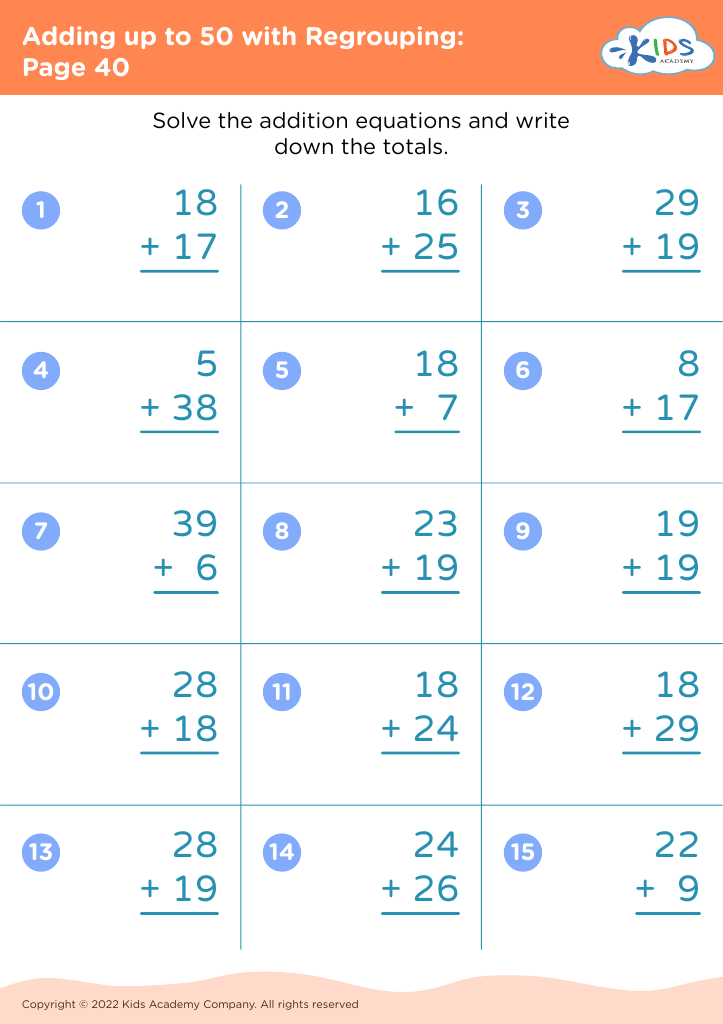

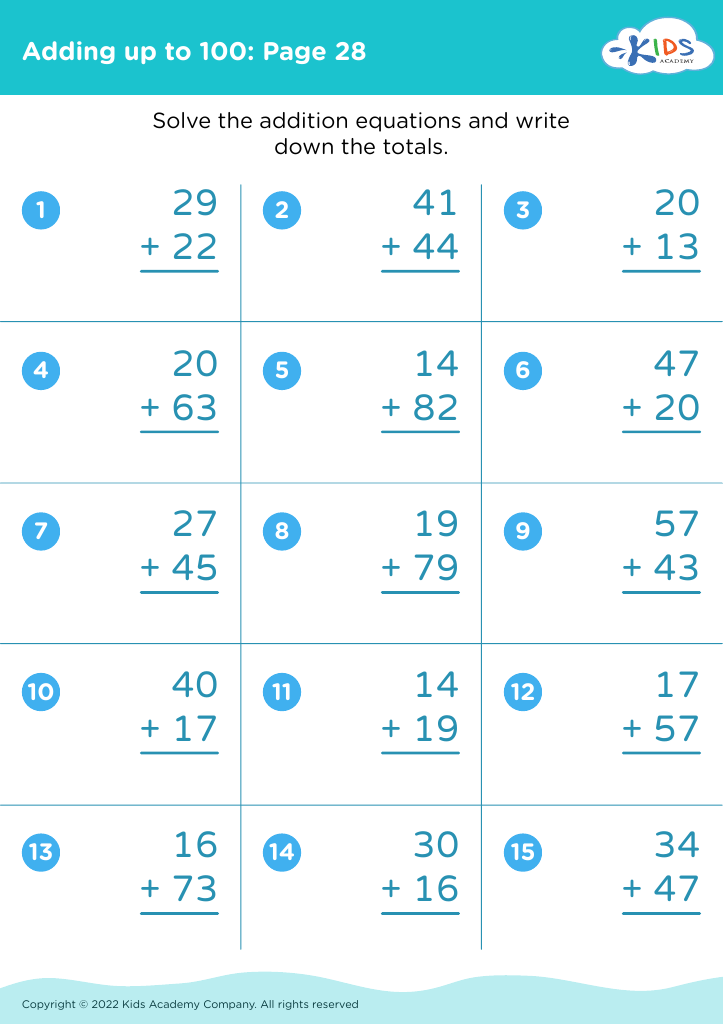
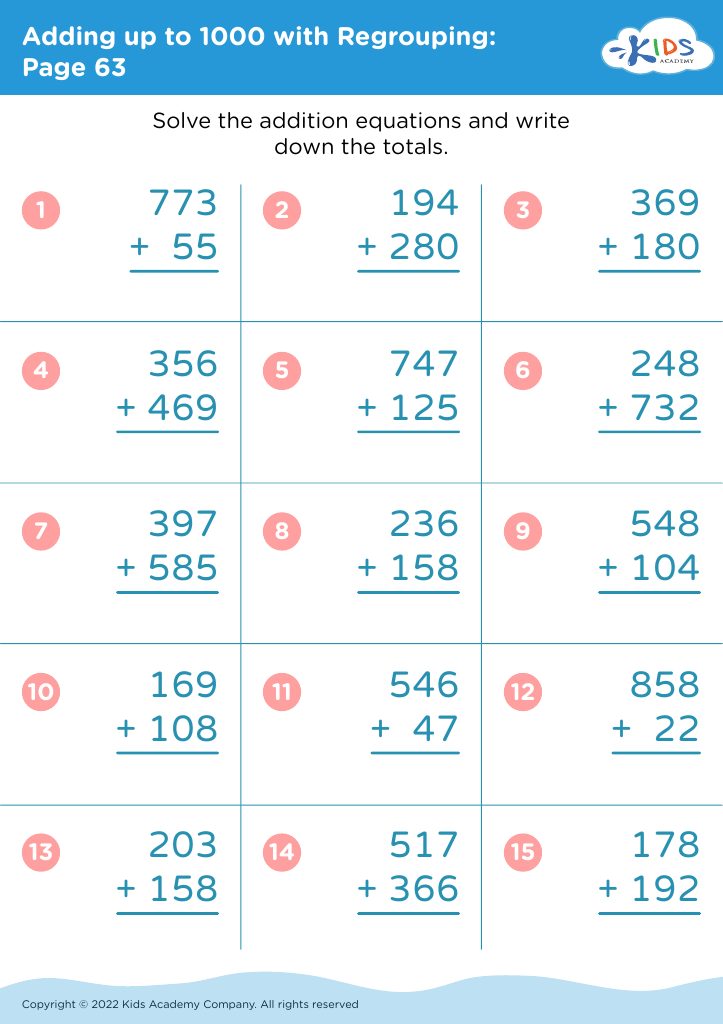



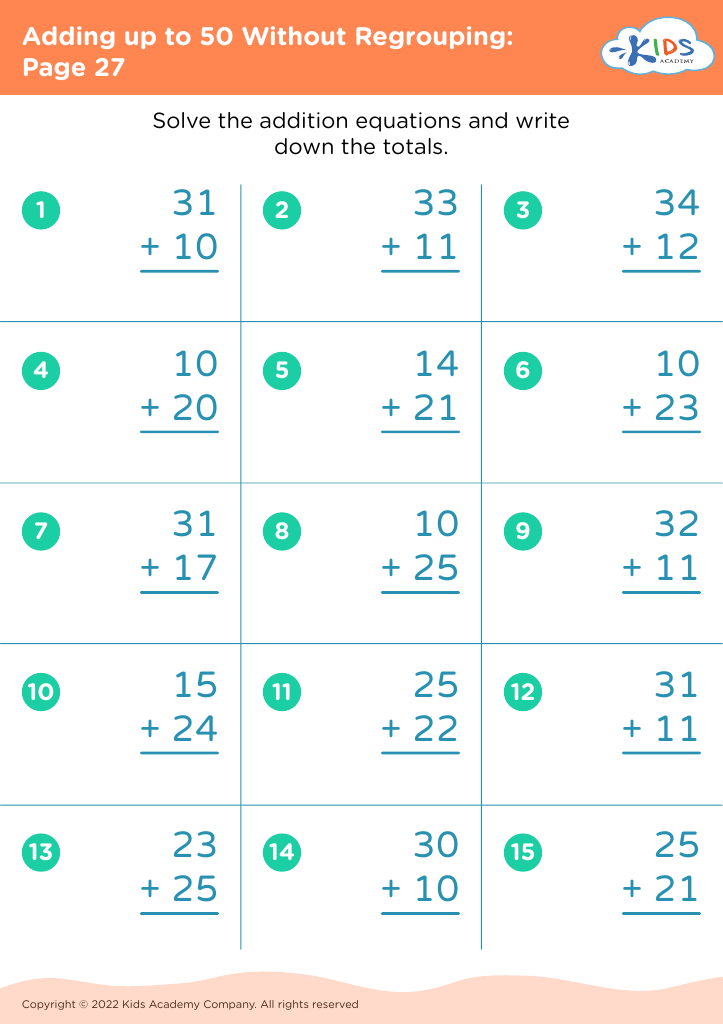
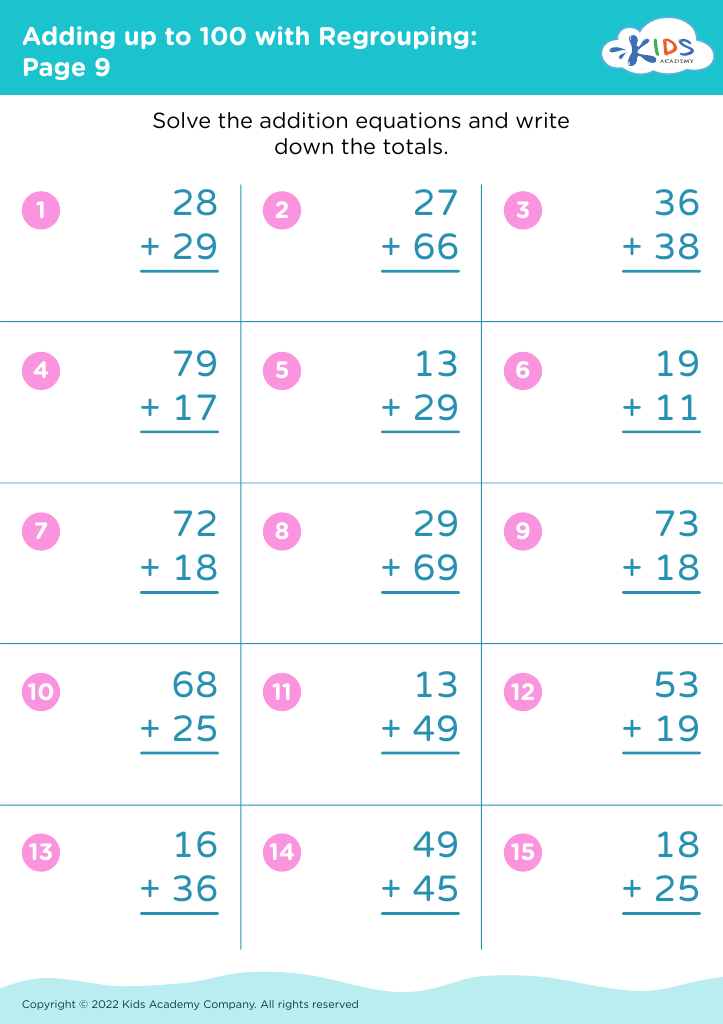
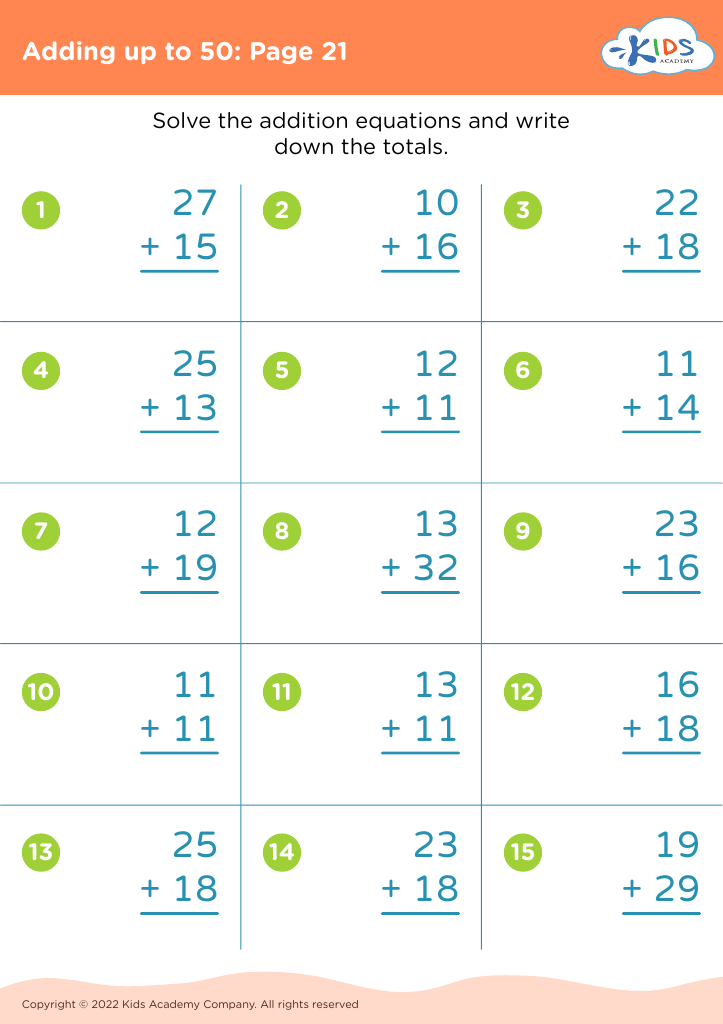


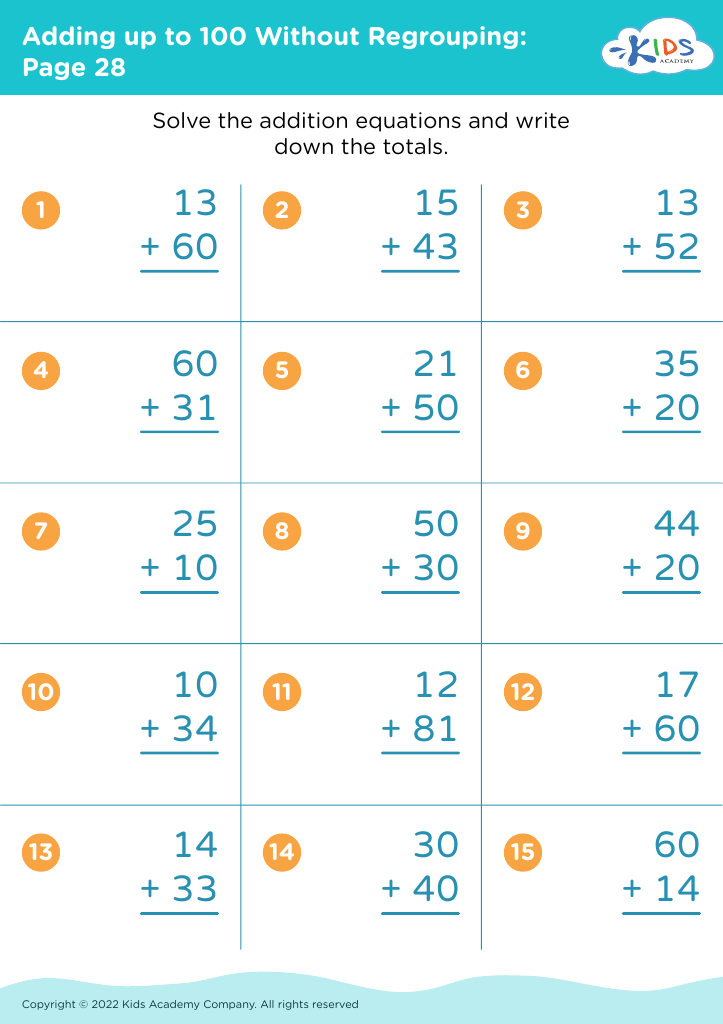



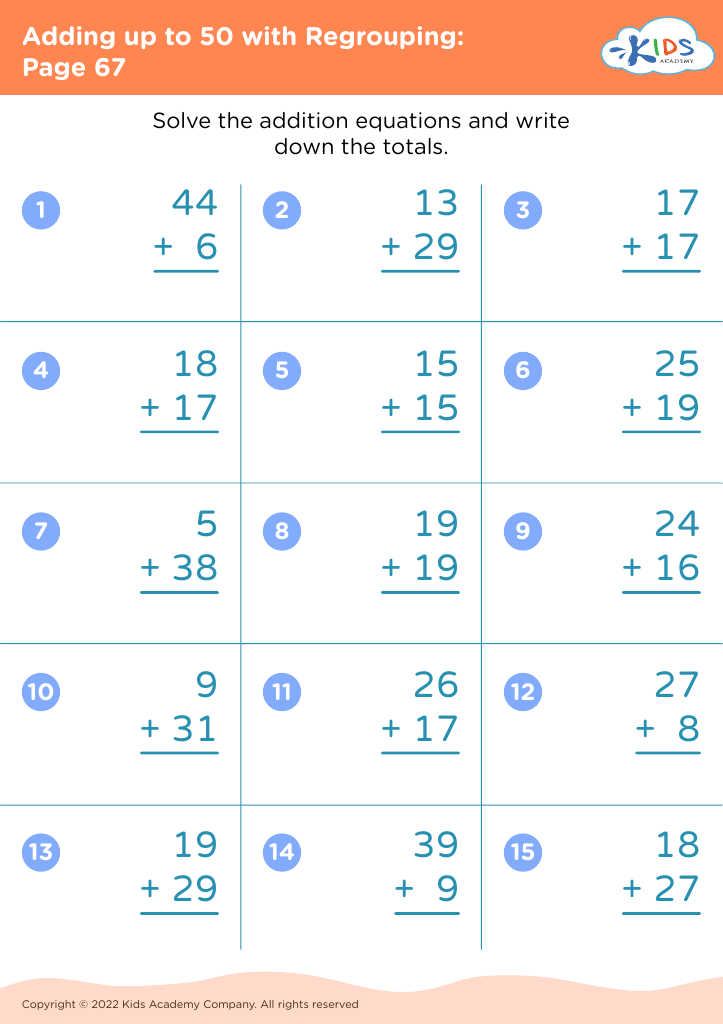


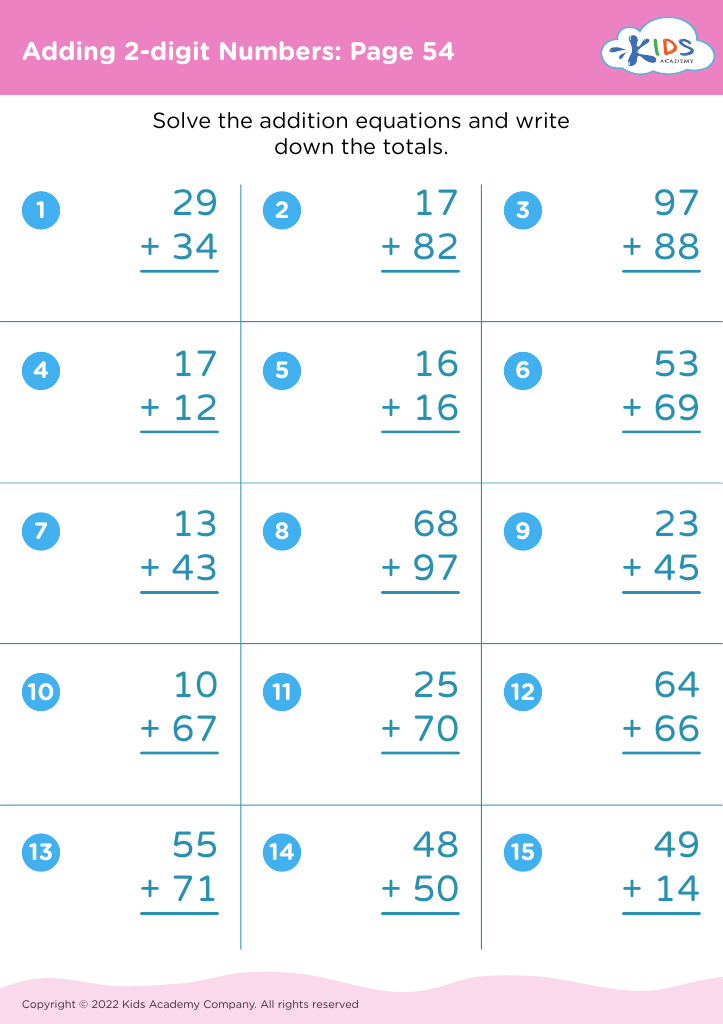
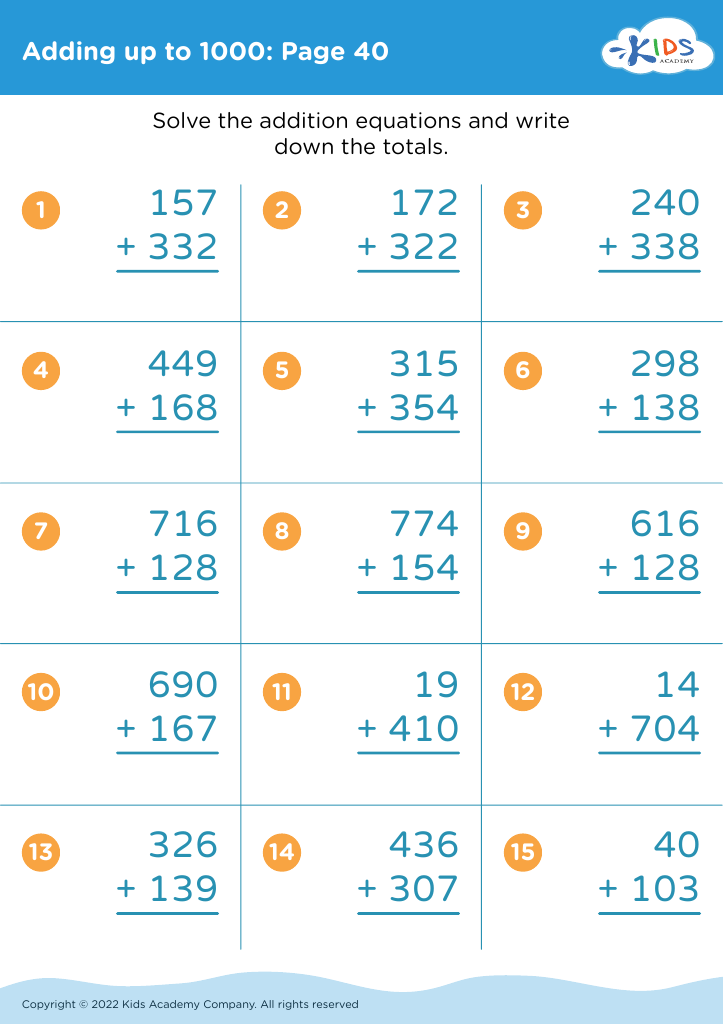


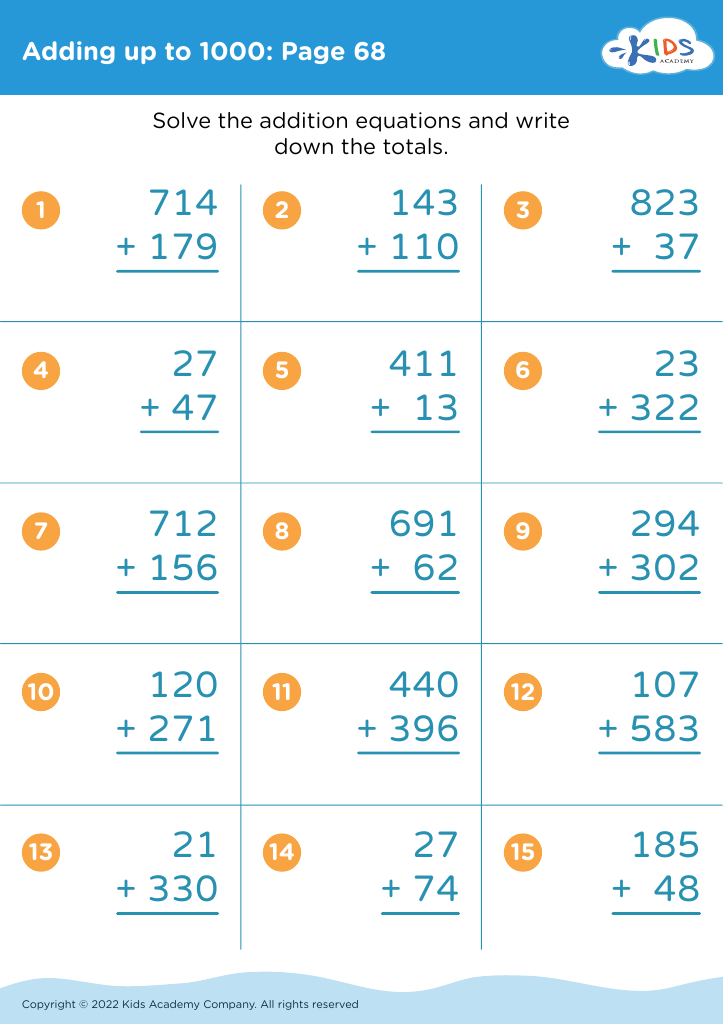
 Assign to My Students
Assign to My Students
